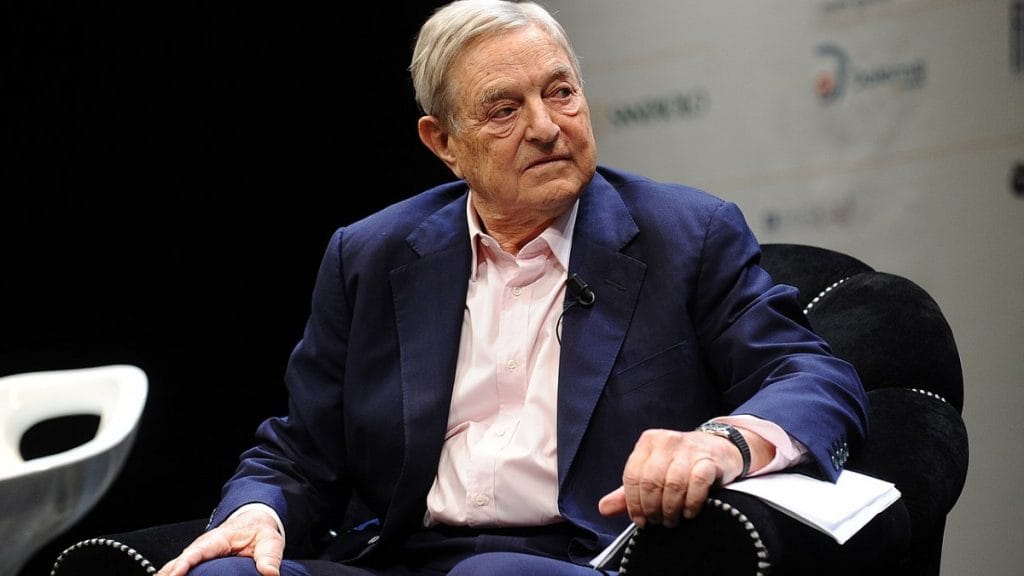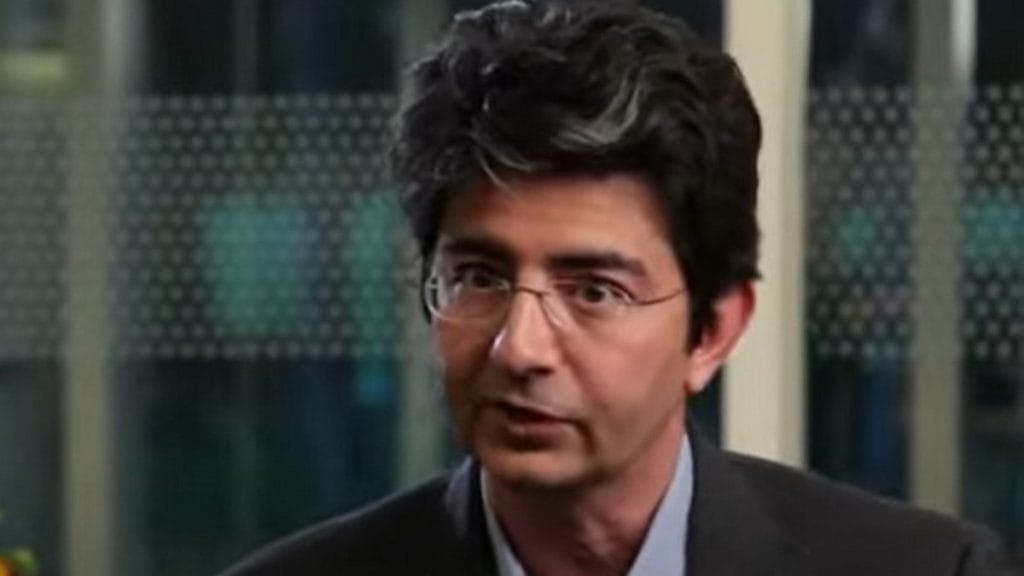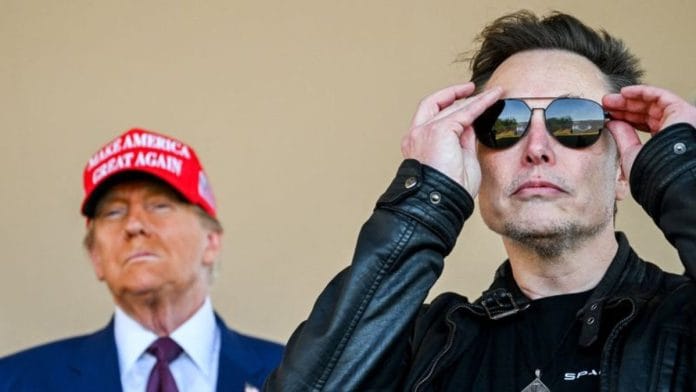Politicians don’t usually have an issue with big business—especially if its money is on their side. But when the tide turns, they hate it. In his farewell address, Joe Biden, who will demit office today, 20 January, railed against the tech “oligarchy” whose “extreme wealth, power and influence… literally threatens our entire democracy”.
Biden’s remarks on the power of the “tech-industrial complex” were a thinly veiled reference to influential tech players like Elon Musk of Tesla, Mark Zuckerberg of Meta, Sundar Pichai of Google, and Tim Cook of Apple—all of whom were expected to attend Donald Trump’s inauguration.
However, his criticism is a bit rich, considering it was the same “tech-industrial complex” that deplatformed Trump in January 2021 after he lost to Biden. And Biden is no newcomer to the politics of big business, having enriched the “military-industrial complex” with endless supplies of American military and munitions aid to Ukraine and Israel. The “tech-industrial complex” also played a part in suppressing content during Covid-19, with Zuckerberg going on record to say the Biden administration had pressured him to censor material. Journalist Matt Taibbi has even alleged that a “censorship-industrial complex” had developed under Biden.
The fact is, big business is often joined at the hip with powerful politicians, and this linkage gets loosened only when the former sees a power shift taking place, as is the case in America right now. However, Biden’s hypocritical statement does not take anything away from the well-known reality he presented to the world.
Also Read: Why rising powers like India must now adopt amorality as the norm
Big bucks, big agendas
The world has a growing problem with hyper-active super billionaires. We know how much power the Big Tech titans like Google, Meta, Microsoft, and X wield through their global platforms. But this power is no longer restricted to making money from great products. It is going beyond commerce to promote sweeping changes in the rules of electoral democracy itself. The ultimate aim of some of these super billionaires is to remake society based on their own ideological predilections.
Till some time back, their billions were used only to force non-Western societies and autocracies to change. Now, with the election of Donald Trump, backed by an enthusiastic Elon Musk, we know that regime change operations are not restricted to the third world. They have infected the first world, and many billionaires are in action, either directly or indirectly.
Wealth is an important byproduct of success, and it empowers those who have enough of it to break out of the daily struggle to put food on the table and a roof over one’s head. But too much of it not only attracts the unwelcome attention of the taxman, but also social envy. Hence giving back becomes important to all wealthy people once their assets cross a certain limit.
Ask yourself: What would you do if you had a billion dollars (that’s Rs 8,600 crore at current exchange rates) sloshing about in your bank accounts? Buy a property in pricey Mumbai’s Malabar Hill or Dubai? Tour the world in a private jet and stay in the swankiest hotels? After you’ve purchased everything that money can reasonably buy, most human beings would think about giving some of it back. Why not donate to a temple or support a village school that prioritises girls’ education?
The possibilities are endless for how to use your wealth. But for some of the super-rich, throwing away a billion or two becomes a pressing necessity to avoid being seen by the taxman or Thomas Piketty (and his cohorts on the Left of the ideological spectrum) as a sitting duck for extortionate levies or regulatory strictures. And if spending that billion helps secure a more favourable political environment, at home or abroad, why not do that?
Billionaires as political actors, Soros to Musk
If you are a George Soros, you can think about knocking out the British pound and busting the Bank of England (in 1992), precipitating a currency crisis in Asia (1997), or replacing politicians you think are too nationalistic or not democratic or woke enough. Thus, a Putin here, a Modi there, a Sheikh Hasina in Bangladesh, or maybe even a Viktor Orban, the Hungarian Prime Minister whose nationalism Soros abhors, are all fair game.
Doing good to help those who need it is no longer a worthy enough cause for ego-driven billionaires with too many billions to play around with. Only a Soros has the wealth and gumption to call prime ministers names. Soros called Mahathir Mohammed of Malaysia a “menace” and termed Modi’s re-election in 2019 the “biggest setback” to open societies.

The man taking the Soros legacy forward on the right of the ideological spectrum is Tesla boss Elon Musk. His billions were last employed to put Donald Trump in the White House, while neutering the efforts of Soros and other “liberal” billionaires to get Kamala Harris in.
Musk is now reportedly plotting to get rid of British Prime Minister Keir Starmer, citing the Labour government’s failure to act against Pakistani “grooming gangs” who raped thousands of teenage and young British girls over the last two decades. He is also batting for Alice Wiedel’s Alliance for Germany (AfD) in the upcoming German general elections. AfD is labelled “far-right” by centrists and the far-left, and campaigns against immigration—exactly the opposite of what Soros wanted Europe to embrace.
European regulators are not taking kindly to this form of election interference from Musk, but the boot was on the other foot during the US elections, where Starmer’s Labour Party is said to have sent volunteers to help with the Kamala Harris campaign. Though the UK has opted out of the European Union, it has never before attempted to influence an election in the US—a fellow Anglo-Saxon nation.
Soros and Musk are among the few unaccountable billionaires to directly interfere in politics, but nearly the entire tech billionaire crowd is into the same game covertly, if not overtly. The tech gang turned against Trump in 2021, after he lost the election, by deplatforming him. With Trump back, chastened billionaires are now busy making amends by adopting many of Trump’s pet themes, including abandoning in-your-face DEI (diversity, equity, and inclusion) policies. Companies walking away from DEI include Meta, McDonald’s, Ford, and Walmart.
While kowtowing to the incoming Trump administration may be one aim, many corporate leaders genuinely believe DEI is an intrusive mechanism that puts race, gender, and disability at the centre of hiring decisions, pushing merit into the background.
DEI may have been backed by the best of intentions, but it put woke academics and non-government organisations (NGOs) in control of corporate and government hiring policies. Billionaires backing DEI went far beyond philanthropy to interfere in academic and corporate decision-making. California, whose economy is larger than India’s and has recently been ravaged by massive fires in Los Angeles, has been a front-runner in the DEI sweepstakes. It is now paying the price for putting woke agendas ahead of competence in governance. By playing with ideological fire, it is now unable to control a real fire.
Democracy vs the super-rich
The ability of billionaires to openly meddle in politics and tilt the democratic field in favour of one candidate over another began in the USA, when the Supreme Court ruled in 2010 that corporations had the same free speech rights as ordinary citizens (Citizens United vs Federal Election Commission). This meant that corporations and billionaires could directly spend money to support or defeat a candidate or party.
Worse, after Donald Trump won in 2016 and lost in 2020, many state legislatures began changing voting rules to tilt the odds in favour of their parties. California, for example, has banned local authorities from requiring voters to show IDs before voting—a move widely interpreted as allowing illegal migrants to vote for the Democrats. Musk has opposed these changes, for good reason, but big money is still indirectly backing (or opposing) efforts to alter voting rules to benefit one party or another. Democracy is being suborned by big money.
While Soros and Musk are moving into geopolitical spaces previously filled by Deep State actors, regime-change operators, and spies, other billionaires are just as active on quasi-political fronts by funding causes like human rights, democracy, or social justice—which too can destabilise societies. Most end up backing social justice warriors from Left-liberal spaces, including their NGOs.
For example, Pierre Omidyar, who made his billions from eBay, and his wife Pam have floated an entity called Humanity United to supposedly fight human rights abuses everywhere, especially mass violence and modern-day slavery.

The idea is to make their main philanthropy arm, Omidyar Network, work more efficiently in such countries, since the Omidyars found that many people could not benefit from pure philanthropy alone. It is not at all wrong to fight human rights abuses, but isn’t that job best left to those societies or voters in those countries?
Clearly, philanthropy is moving far beyond basic humanitarian charity to projects that seek wholesale social interventions and political upheavals—often driven by pure billionaire vanity.
Also Read: Can ONOE work? It has one good argument going for it, and that’s enough
Does ‘charity’ need restrictions?
One problem billionaires face is what most people would think of as an unmixed blessing—the speed at which billions multiply. If a billionaire does not keep giving away the annual accretions, the money accumulates even faster.
Here’s the simple math: let’s say you have a billion dollars in the bank (or in investments or businesses). At current US interest rates, this billion will generate nearly $47 million every year if invested in the safest of avenues (US 10-year Treasury bills, currently yielding around 4.7 per cent). That’s over Rs 400 crore, with the capital intact. Invested in stock markets or more profitable businesses, it could earn twice or thrice as much. In the safest of investments, billionaire wealth can double in 14-15 years. In the most profitable ones, it could double almost every five years.
This is one reason why billionaires created The Giving Pledge where the super-rich openly commit to giving away half their wealth in stages.
Investor Warren Buffett has so much wealth that he’s not only giving it away during his lifetime but has committed his heirs to continue doing so for another decade. Others, like MacKenzie Scott, ex-wife of former Amazon boss Jeff Bezos, are setting new records in philanthropy. Scott has given away just under $20 billion between 2019 and the end of 2024. Her divorce from Bezos cost him $38 billion. One might assume her munificence is partially driven by guilt over the windfall from that settlement. Elon Musk, however, disapproves of her munificence. Billionaires are calling out other billionaires.
If massive, accumulating wealth is such a problem, why not tax it? Unfortunately, the solution is often worse than the disease. It is not as if governments have any wiser ways of spending unearned billions. Politicians will likely spend the money to get themselves re-elected—which is no different from Soros or Musk spending billions to ensure someone they like gets elected (or rejected, as in Keir Starmer’s case). Joe Biden, for one, has been busy sending arms and ammo to Ukraine and West Asia. Hardly a very productive use of taxpayer (or borrowed) wealth.
The world has a problem with billionaire wealth, whether it is taxed or untaxed. Is there a third option?
The only way out may be laws that specifically restrict how billionaires use their wealth (beyond spending on themselves). For example, spending on improving government schools or healthcare centres can be opened up to rich entrepreneurs without causing huge political convulsions. Given the poor quality of state-run schools and hospitals in India, this could even improve learning and health outcomes. Putting up public infrastructure is another avenue that should be open for billionaire wealth.
There is no lack of avenues where billionaires can spend to deliver public goods or good social outcomes without suborning democracy itself. Placing restrictions on where they can do charity is better than letting billionaires play god with governments they think are unacceptable, including in their host countries. That is something voting citizens should deal with, not billionaires.
R Jagannathan is editorial director at Swarajya magazine. Views are personal.
(Edited by Asavari Singh)







Equating Soros who gave most of his wealth to charity with greedy Musk who was in forefront of Trump campaign is amusing. Former is a holocaust survivor, later did a Nazi salute during inaugration of Trump Presidency, as reported in German media. I read only the headline, skipping the article.
Brilliant article. It should have also mentioned what many of our billionaires are doing! Funding institutions like Harward, Stanford etc. Dont these institutions have enough funding? And the loony left brigade in these institutions go out of their way to attack Indian heritage etc. Why don’t they invest in IITs, AIMS and other Universities here in India??